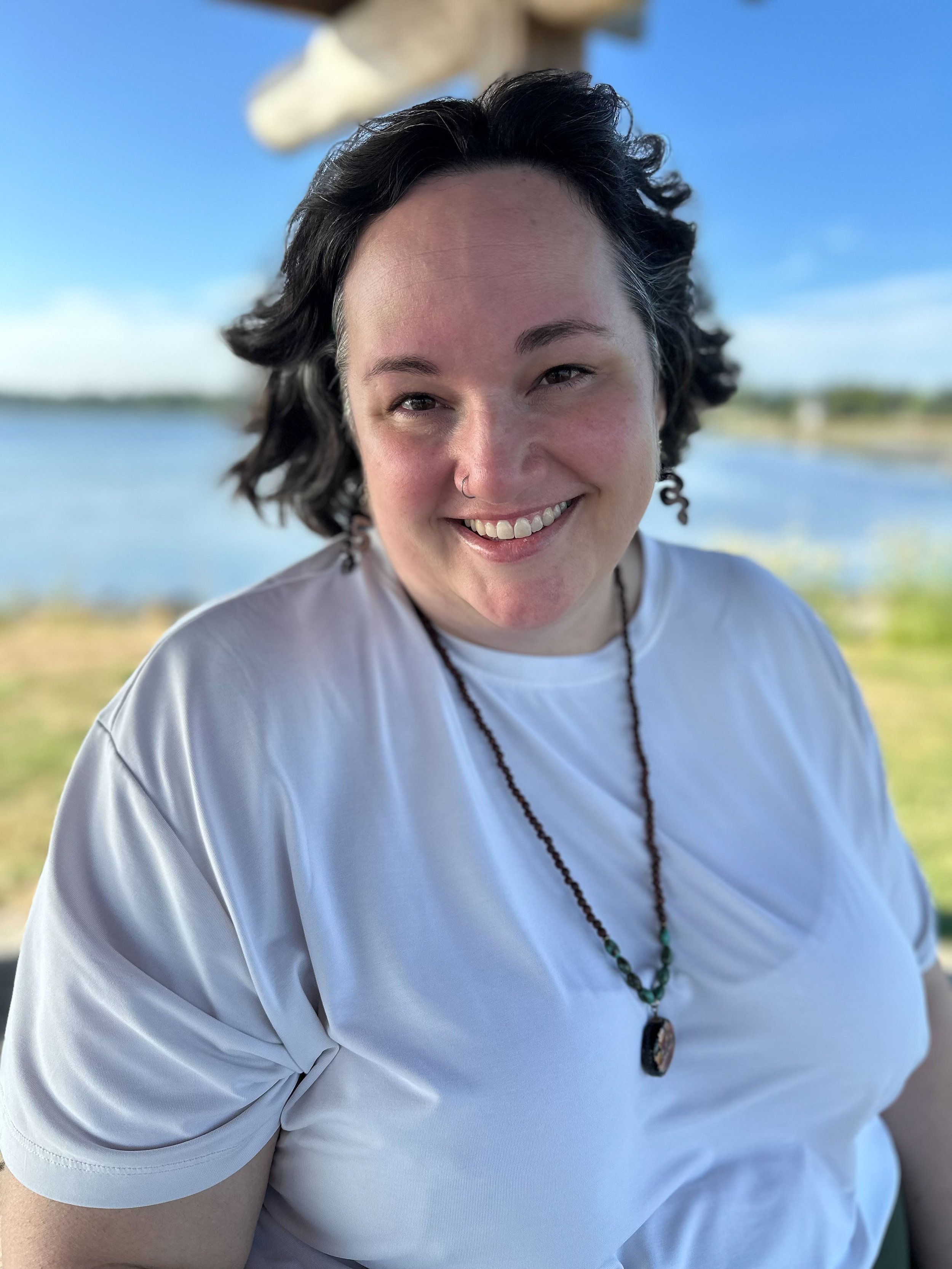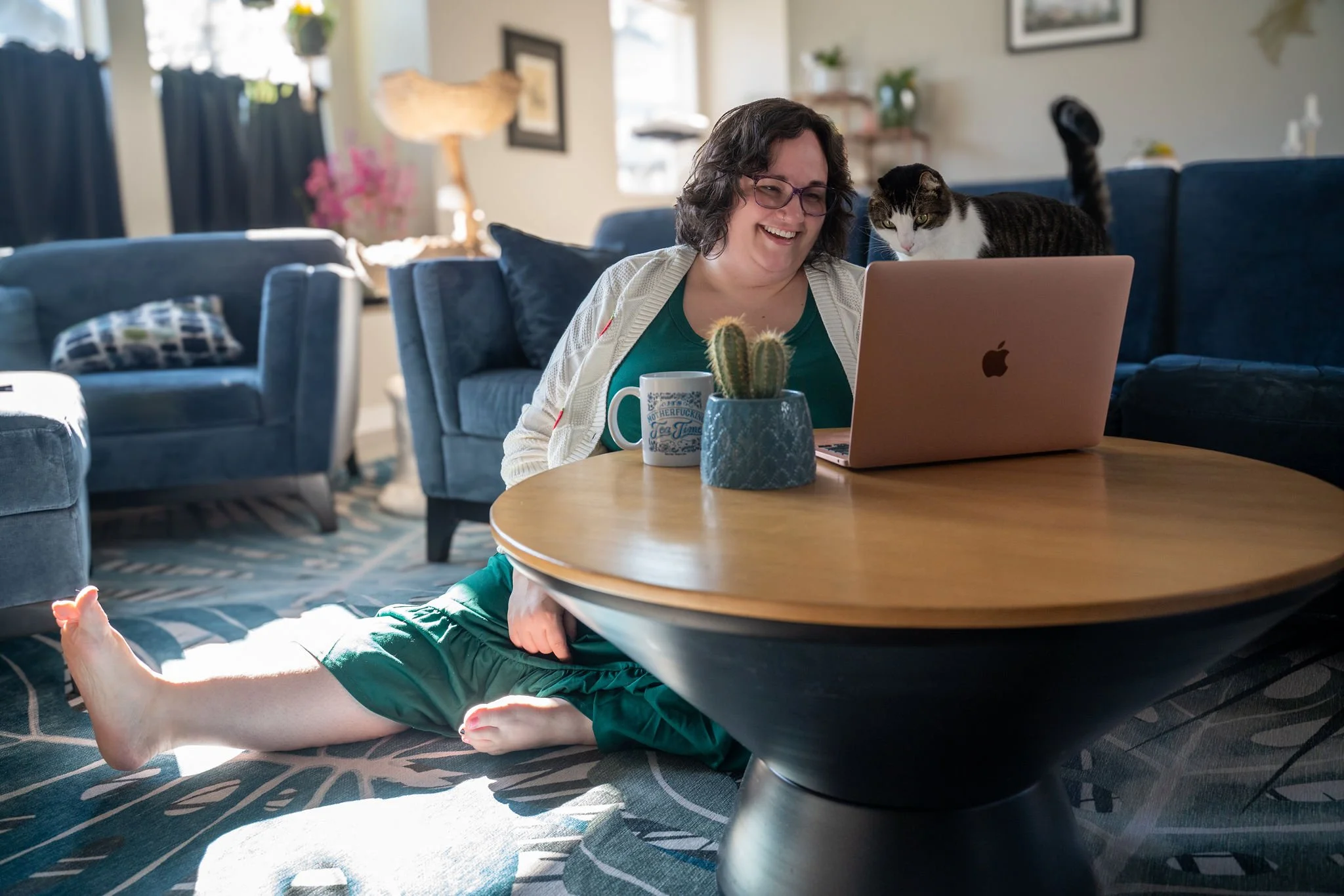
“The privilege of a lifetime is to become who you truly are.” ~ Carl Jung
My Therapy Approach
I'm not a one-size-fits-all therapist, and you're not a one-size-fits-all human.
My work is grounded in Acceptance and Commitment Therapy (ACT), which means we focus on making space for hard feelings while building a life aligned with what actually matters to you. I also pull from compassion-focused therapy, parts work, attachment theory, and anti-oppression frameworks. Whatever helps you reconnect with yourself and move toward what you care about.
I take a Health at Every Size (HAES) aligned approach to body and food work, which means no diet culture, no pathologizing, and no "wellness" performance.
What you can expect from me: I listen deeply, track patterns you might not see yet, and challenge beliefs that keep you stuck. I show up as a whole person, not a distant expert. And I adjust my approach based on what your nervous system actually needs, not what a manual says should happen next.
You won't get cookie-cutter advice or prescriptive "shoulds." You'll get someone who sees you clearly and helps you see yourself more clearly too.
Credentials
Licensed Mental Health Counselor (WA)
Certified Intuitive Eating Counselor
MA in Counseling – Seton Hall University
BA in Anthropology – Western Washington University
Current Availability (Updated Monthly)
My caseload is currently full. To maintain quality care for current clients and manage sustainable capacity, I am not currently accepting new waitlist additions. I will update this section when the waitlist reopens.
If you need care sooner: Please reach out via the contact form or email, and I'm happy to provide referrals to trusted colleagues who share similar therapeutic values and currently have availability.
What I Stand For
I work with people who've been harmed by systems that were never built for them.
Maybe that's healthcare providers who dismissed your pain, blamed your weight, or told you your autism/ADHD "couldn't be that bad." Maybe it's diet culture that taught you your body was a problem to solve. Maybe it's a world that punished you for being queer, for being different, for taking up space.
My practice is designed with marginalized folks in mind—fat people, queer and trans people, neurodivergent adults (especially those diagnosed late or self-diagnosed), people with complex trauma, and anyone who's been told they're "too much" or "not enough." But if you're someone who recognizes how systems of oppression operate, who's committed to unlearning harmful beliefs, and who's looking for liberation-focused therapy, you're welcome here regardless of your identities.
This is trauma-informed, neurodiversity-affirming, fat liberation-oriented, anti-oppression care. That's not just language, it's practice. It means I won't pathologize your body, question your identity, or ask you to adapt to systems that were designed to exclude you.
I'm here to help you untangle the beliefs that keep you small, challenge what you've been told about yourself, and build something that's actually yours.
You don't have to perform competence or "prove" your struggle here. You just have to show up.
At the core of it all? I want you to know what it’s like to not feel so alone.
How I Show Up in Session
I think out loud, follow tangents when they matter, and adjust my approach based on what your nervous system needs in the moment. Some days that means slowing down and sitting with hard feelings. Other days it means strategic problem-solving or mapping patterns on a whiteboard.
I notice what you're not saying as much as what you are. I track themes across sessions. And I'll gently (sometimes not-so-gently) challenge beliefs that keep you stuck, not to push you, but because I believe you're capable of more than survival mode.
I bring my whole self to this work, including my neurodivergent brain that thinks in non-linear, connective ways. That means I might miss small details but I'm good at seeing the bigger patterns. It means I value flexibility over rigid protocols. And it means I understand firsthand what it's like to need systems that work WITH your brain, not against it.
If something here resonated, let’s talk.
You don’t have to do this alone and you don’t have to have it all figured out first.


